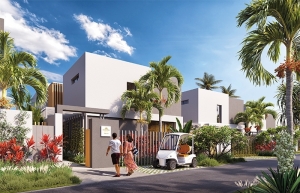Necessary steps for legal clarification of condotels
Condotels and shophouses in Vietnam do not have a clear legal framework regulating them, leaving a big gap in understanding and creating risks for real estate developers, buyers, and investors.
 |
| Thang Nguyen-Special counsel, ACVS Legal |
By their market-standard definition, condotels and shophouses are mixed-use real estate. A condotel has elements of both a condominium and a hotel, as they are privately owned condominium units operated like a hotel room and leased out on short-term rentals. A shophouse is a residential house with a part or separate floor designed to be a shop.
The legal issues hampering the growth of condotels and shophouses in the Vietnamese market include no clear definition of condotel and shophouse in any legislation.
The current Law on Land and the draft amended version do not provide clear guidance in cases when the land and property on such land are used for both commercial and residential purposes; and the regulations on planning, construction, and real estate business do not mention and regulate condotels and shophouses, nor their construction and operation clearly.
The closest definition of a condotel in Vietnamese law is for tourism villas in the Law on Tourism. However, this is insufficient to develop a healthy and legally sound condotel market.
If a condotel building is legally built as a hotel on land designated for commercial and service use (i.e. short-term residence), not for long-term residential use, no ownership certificate or so-called pink book is issued to the buyer. This certificate contains the title of the individual units. Only one pink book for the entire building will be issued to the developer, which goes against the buyers’ aim of having a legal title over their condotel units.
Conversely, if the condotel is built as a residential apartment building on land designated for residential use, the buyers will be issued a pink book for the apartment and have their legal title recorded like a normal residential apartment. However, this could land the developer into legal trouble concerning the land use planning approved by the authorities.
There are currently no planning guidelines for condotel buildings, so the authorities have to refer to planning requirements for residential and commercial buildings, which are separate and quite different. The planning regulations (Law on Planning and Law on Construction) should be amended to address mixed-use properties better. This is needed to calculate planning parameters properly for condotel buildings and to avoid straining nearby infrastructure facilities.
As for the operation and management of condotel units, the regulations are also silent, so it is up to the developers, the buyers and the users to work out a contractual scheme by themselves to effectively manage and operate the condotel building and units. This may potentially cause many legal disputes if the agreements have loopholes or do not address all possible scenarios.
The Law on Residential Housing and the Law on Real Estate Business should be amended to provide a baseline legal framework for the agreements related to the operation and management of condotel units.
As for shophouses, they currently are better regulated than condotels since the Law on Residential Housing and guiding legislations mention residential apartments with an area used for business or commercial purposes. For such residential apartments, usually, the pink book certifying their ownership will provide a term of ownership for no longer than 50 years following the project term. Regardless, shophouses can still and should be more clearly defined in regulations to provide stronger assurance to the developers and buyers.
In conclusion, it would be preferable if the draft amended Law on Land would more clearly address cases where a piece of land or property is used for both residential and commercial purposes and how the pink book/land use rights certificate can be issued for such land or property.
However, amending only the Law on Land would not completely resolve the uncertainty in the legal framework for condotels and shophouses. It is required that other laws, such as those on residential housing, real estate business, planning, the tourism, and construction are also amended to define the concept of condotels and shophouses to be consistent with the Law on Land.
 | Homebuyers gather at Empire Group headquarters to claim condotels A lot of buyers of Cocobay Danang gathered at the headquarters of Empire Group in Tay Ho district, Hanoi, demanding that the developer either hands over overdue units or terminates the contracts and reimburses them after reneging on their yield commitment. |
 | Condotels to flare up with legal fine-tuning With the tourism real estate market almost frozen after the collapse of luxury resort project Cocobay and the harsh impact of COVID-19, good news has come recently in the form of a new document issued by the Ministry of Natural Resources and Environment meant to guide the land use regime and ownership certification of non-residential construction works. |
 | Hanoi tightens management over condotels, officetels, resort villas The Hanoi People's Committee recently issued a written request to tighten the management of the investment, construction and business of condotels, tourist villas and officetels. |
What the stars mean:
★ Poor ★ ★ Promising ★★★ Good ★★★★ Very good ★★★★★ Exceptional
Related Contents
Latest News
More News
- Construction firms poised for growth on public investment and capital market support (February 11, 2026 | 11:38)
- Mitsubishi acquires Thuan An 1 residential development from PDR (February 09, 2026 | 08:00)
- Frasers Property and GELEX Infrastructure propose new joint venture (February 07, 2026 | 15:00)
- Sun Group led consortium selected as investor for new urban area (February 06, 2026 | 15:20)
- Vietnam breaks into Top 10 countries and regions for LEED outside the US (February 05, 2026 | 17:56)
- Fairmont opens first Vietnam property in Hanoi (February 04, 2026 | 16:09)
- Real estate investment trusts pivotal for long-term success (February 02, 2026 | 11:09)
- Dong Nai experiences shifting expectations and new industrial cycle (January 28, 2026 | 09:00)
- An Phat 5 Industrial Park targets ESG-driven investors in Hai Phong (January 26, 2026 | 08:30)
- Decree opens incentives for green urban development (January 24, 2026 | 11:18)

 Tag:
Tag:




















 Mobile Version
Mobile Version